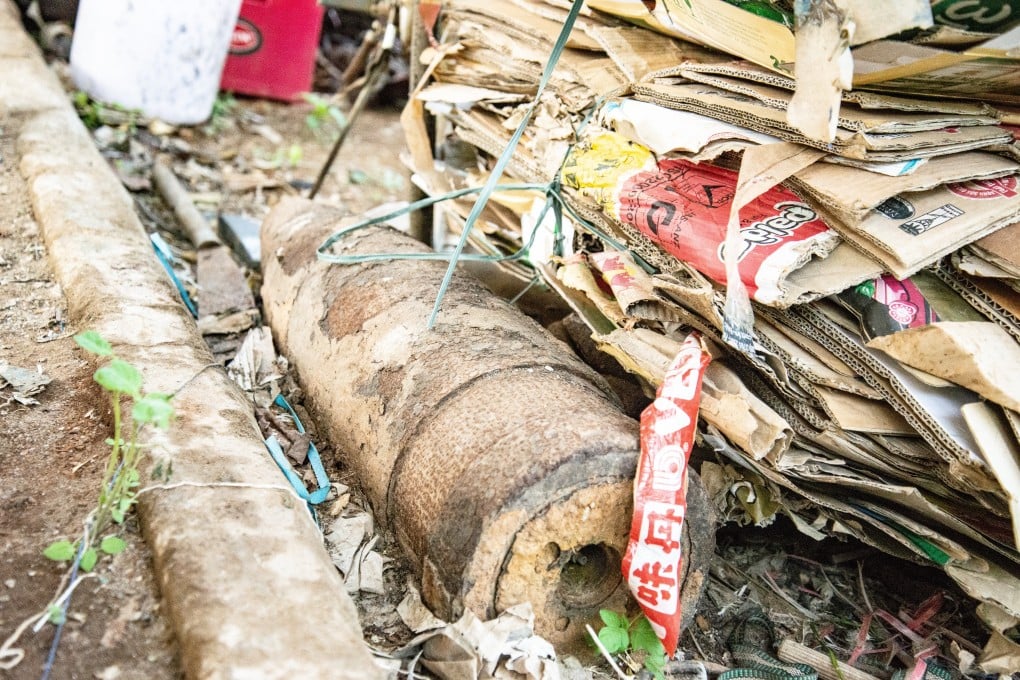Advertisement
For scrap metal collectors, US-Vietnam war bombs are still a source of life and death
- More than 40 years after the Vietnam war ended, unexploded ordnance still litters Quang Tri province – providing a source of income for some
- At least 8,500 people have died from bomb explosions since the conflict concluded in 1975. One in three were metal collectors
Reading Time:4 minutes
Why you can trust SCMP

It is six in the morning as Nguyen Xuan Dong pushes his bicycle out of his village home in Cam Lo district, Quang Tri, careful not to wake his family of 12.
The 74-year-old loads a home-made metal detector, put together clumsily with duct tape, and pedals 20km to a forested area where he starts looking for scrap left over from the Vietnam war, which ended in 1975.
Using his bare hands, Dong digs for mortar shells, bullets and metal fragments from large, cylindrical bombs buried below the ground. By 2pm, with 10kg strapped to his back, he is done. His prized hoard, which he will sell to middlemen to resell to metal traders, comprises scraps of unexploded ordnance (UXO).
Advertisement
Dong is blind in one eye, from a bomb explosion in 2008. After 30 years of tempting fate, he knows a wrong move could cost him a limb, or his life.

Advertisement
“I am lucky to survive another day,” he says. “I don’t have a choice, I need to feed my family.”
Advertisement
Select Voice
Select Speed
1.00x